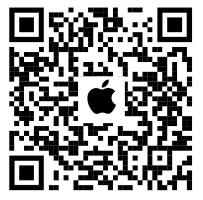Here's what you should look out for…
Hackers use malware, which is malicious software, to disrupt computer operations and gather sensitive information, or to gain unauthorized access to your computer.
Mobile malware is malware that infects your mobile devices. Mobile malware gathers sensitive information and exploits other vulnerabilities in mobile software.
To help members better understand fraud, scams, and cyber security threats, the National Credit Union Administration (NCUA) has created a two-part video on how to recognize, avoid, and report cyber fraud:
- Frauds, Scams and Cyber Threats: Part 1
- Frauds, Scams and Cyber Threats: Part 2
Here’s how you can stay protected:
- Monitor your online and mobile banking account on the go with eAlerts. These are free email or text message alerts that notify you when certain activity occurs on your account. Visit the eAlerts page to learn how to enroll in eAlerts today.
- Read our Security News article, Best Practices for Your Mobile Devices, to learn how to keep your laptops, tablets, and smartphones safe.
- Keep your computers and mobile devices up to date. Ensure you have the latest security software, web browser, and security updates for your operating system. Turn on automatic updates to receive the newest software updates when they become available.
- Set strong passwords. A strong password is at least eight characters in length and includes a mix of upper- and lowercase letters, numbers and special characters. Consider using a phrase where you can inject numbers and symbols in between characters.
- Protect your computer and mobile device with a password or passcode.
- Turn off wireless and Bluetooth services when you’re not using them.
- Encrypt mobile devices, including laptops, when possible. This protects sensitive data should the device be lost or stolen.
- Do not share personal information on social media. Attackers can use personal information posted on social media to figure out your username, passwords, and answers to security questions. Lock down your privacy settings and avoid posting things like birthdays, addresses, mother’s maiden name, etc. Never accept requests to connect from people you do not know.
- Secure your internet connection. Always protect your home wireless network with a password. When connected to public Wi-Fi networks, be cautious of what information you may be sending over it.
- Safely shop online. Before shopping online, make sure the website uses a secure connection. Look for the tiny padlock symbol on the page and make sure the web address begins with https.
- Read the privacy policies on the websites you visit. Privacy policies let you know how a site protects personal information collected. If you do not see a privacy policy available, consider using another business.
- Regularly check your account activity, especially if you make online purchases. Compare the current balance and transactions on your statement to those you’ve recorded.


